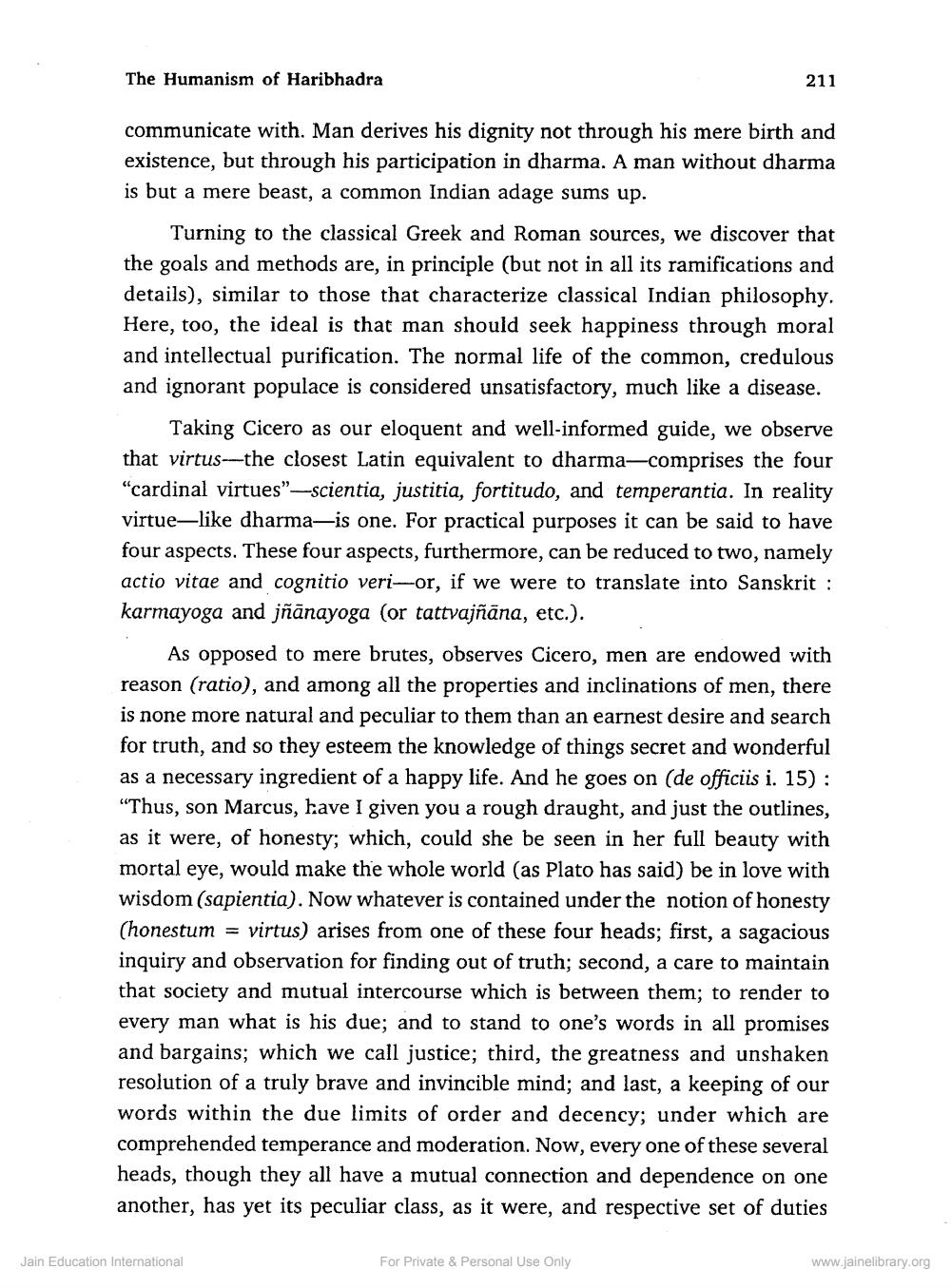________________
The Humanism of Haribhadra
211
communicate with. Man derives his dignity not through his mere birth and existence, but through his participation in dharma. A man without dharma is but a mere beast, a common Indian adage sums up.
Turning to the classical Greek and Roman sources, we discover that the goals and methods are, in principle (but not in all its ramifications and details), similar to those that characterize classical Indian philosophy. Here, too, the ideal is that man should seek happiness through moral and intellectual purification. The normal life of the common, credulous and ignorant populace is considered unsatisfactory, much like a disease.
Taking Cicero as our eloquent and well-informed guide, we observe that virtus--the closest Latin equivalent to dharma-comprises the four "cardinal virtues"-scientia, justitia, fortitudo, and temperantia. In reality virtue-like dharma-is one. For practical purposes it can be said to have four aspects. These four aspects, furthermore, can be reduced to two, namely actio vitae and cognitio verior, if we were to translate into Sanskrit : karmayoga and jñānayoga (or tattvajñāna, etc.).
As opposed to mere brutes, observes Cicero, men are endowed with reason (ratio), and among all the properties and inclinations of men, there is none more natural and peculiar to them than an earnest desire and search for truth, and so they esteem the knowledge of things secret and wonderful as a necessary ingredient of a happy life. And he goes on (de officiis i. 15): “Thus, son Marcus, have I given you a rough draught, and just the outlines, as it were, of honesty; which, could she be seen in her full beauty with mortal eye, would make the whole world (as Plato has said) be in love with wisdom (sapientia). Now whatever is contained under the notion of honesty (honestum = virtus) arises from one of these four heads; first, a sagacious inquiry and observation for finding out of truth; second, a care to maintain that society and mutual intercourse which is between them; to render to every man what is his due; and to stand to one's words in all promises and bargains; which we call justice; third, the greatness and unshaken resolution of a truly brave and invincible mind; and last, a keeping of our words within the due limits of order and decency; under which are comprehended temperance and moderation. Now, every one of these several heads, though they all have a mutual connection and dependence on one another, has yet its peculiar class, as it were, and respective set of duties
Jain Education International
For Private & Personal Use Only
www.jainelibrary.org




